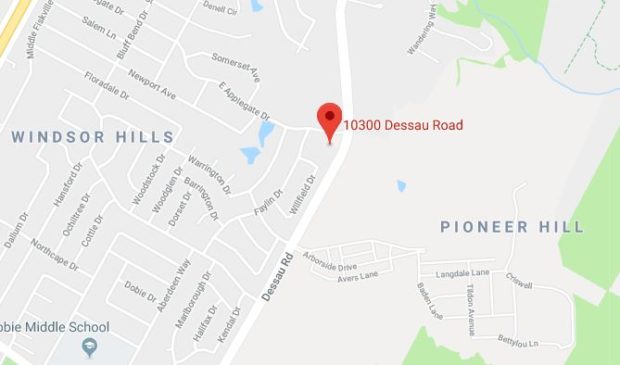Council approves 18 townhouses in Northeast Austin
Wednesday, November 21, 2018 by
Jack Craver In spite of opposition from neighbors who fear flooding and increased traffic, at its Nov. 15 meeting City Council overwhelmingly approved a rezoning to allow the construction of 18 new homes on a vacant lot at 10300 Dessau Road.
The site was previously zoned Family Residence, or SF-3, which allows the type of single-family homes that are characteristic of most Central Austin neighborhoods. Council’s action increased the zoning entitlement to Townhouse & Condominium Residence (SF-6) to allow townhouse-style homes.
The rezoning was supported by both city staff and the Planning Commission, which also recommended a conditional overlay that would limit the site to 18 units. However, as both the applicant and city staff explained, the restriction is most likely moot, since the developer has no plans to build more than 18 units.
Preya Sundaram, an agent for Central Texas Group, the property owner, said the proposed development is meeting the rising demand in a “growing part of town.”
One nearby resident, Mary Elizabeth Hair, testified against the rezoning, voicing the familiar concerns about new development that are a feature of nearly every controversial zoning case in Austin: flooding, traffic and property values.
The site targeted for development is on a hill and Hair fears that rainwater at the site will flow down onto properties to the south. The access point to the site is on East Applegate Drive, which Hair described as substandard and too narrow to accommodate additional traffic. Even before the project is completed, she argued, the construction vehicles traveling to the site will further damage the road.
Hair expressed two distinct concerns about the new development’s impact on property values: first, that the project will increase property values and therefore property taxes, forcing people to move; and second, that flooding would reduce property values.
“Please help us protect our property, our investment,” said Hair. “We moved to the community, we bought our homes for a reason. That is for safety. And we don’t want to devalue our property.”
Travis Moltz, an engineer for the applicant, said that in addition to a detention pond, the developer planned on building up the site’s southern boundary to prevent water from flowing down to the homes south of the site. Instead, he said, water will flow onto Applegate.
As for Applegate, he acknowledged that the road is “in relatively bad shape, but that isn’t necessarily this site’s concern.”
Council Member Ora Houston asked why the site would not exit to or enter from Dessau Road. Moltz replied that topography of the site, coupled with the high speeds traveled on Dessau, made an access point on Applegate a safer option.
Houston said that area of Northeast Austin was in need of new housing. The road situation wasn’t ideal, she said, but it also wasn’t bad enough to prompt her opposition.
“Even though we have no transit out there and everyone has to get into a single-occupancy car, this one I’m going to support,” said Houston.
Council Member Jimmy Flannigan was the lone dissenter. As he has done frequently over the past year, Flannigan objected to the conditional overlay, saying there was no reason for it, particularly in light of the developer’s stated plans not to build more units.
The project itself, said Flannigan, is the result of a land development code that doesn’t allow enough housing to be built in the urban core, either through infill or redevelopment. The resulting greenfield development on the edges of town is bad for the environment, flood management, transportation and affordability, he has argued.
“If we don’t build housing inside the city, we’ll just keep sprawling out,” he said. “This is the housing that the code allows me to build right now.”
With only Flannigan voting against and Council Member Troxclair absent, Council approved the zoning change.
Map courtesy of Google Maps.
The Austin Monitor’s work is made possible by donations from the community. Though our reporting covers donors from time to time, we are careful to keep business and editorial efforts separate while maintaining transparency. A complete list of donors is available here, and our code of ethics is explained here.
You're a community leader
And we’re honored you look to us for serious, in-depth news. You know a strong community needs local and dedicated watchdog reporting. We’re here for you and that won’t change. Now will you take the powerful next step and support our nonprofit news organization?







